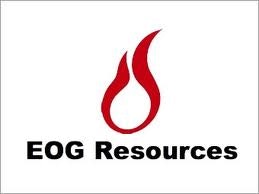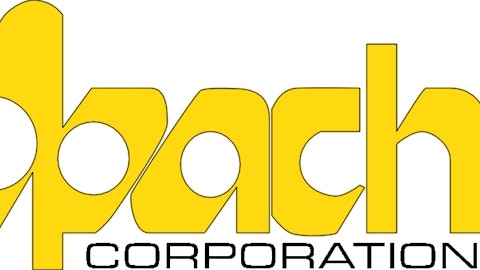EOG Resources Inc (NYSE:EOG)’s latest slide deck has an interesting scrap of information. Its significance was highlighted by a late question buried at the end of its quarterly conference call. Mark Papa revealed that EOG is seeing signs of weakness in Eagle Ford condensate pricing. If condensate prices weaken significantly, the impact on Eagle Ford producers could be significant, providing double trouble in this period of weak natural gas pricing.
Some good information can be found on the internet, if you’re willing to dig for it. Message boards and investment sites allow retail investors to share information, digging up scuttlebutt on the companies they follow. A grain of salt is sometimes required, but a remarkably wide array of information is available to those that look for it.
A recent exchange on the Motley Fool’s message boards called attention to EOG Resources Inc (NYSE:EOG)’s most recent slide deck and its quarterly conference call. One particularly well-informed poster questioned if condensate pricing might be ready for a drop based on comments made by EOG Chairman and CEO, Mark Papa, on EOG’s earnings call.
EOG Resources Inc (NYSE:EOG) led the current move by Independent E&Ps into the oil shale, and Papa is a big oil bull and natural gas bear. In fact, EOG is bearish very long term on natural gas. However, some feel that gas is due for a correction as supplies diminish as a result of the industry reducing rig counts on the major gas producing shales.
Papa thinks that’s wrong. Dead wrong.
As natural gas prices fell, independents shifted drilling to ‘wet’ gas acreage that produced natural gas liquids (NGLs) to supplement falling gas revenue. NGL pricing subsequently collapsed under the weight of the resulting NGL oversupply, particularly in the ethane market. Papa’s quick to point out that the NGL crunch has simply led to more and more combined production.
A ‘combo’ play refers to acreage that produces both oil and gas, typically in the realm of a 50:50 mix. The oil off the wells boost returns enough, raising return on investment and making the wells economic.
The Barnett combo play’s been particularly important for large cap independents with predominantly gas-oriented acreage portfolios, most notably Devon Energy Corp (NYSE:DVN). Everyone has some stake in the Barnett, but Devon’s still valuable Barnett acreage is huge, and the combo acreage provides some all-important oil to offset weakening gas revenue.
That allows companies like Devon Energy Corp (NYSE:DVN) to keep drilling their Barnett acreage, preventing the draw down in supply some predict and keeping a roof on gas prices for the foreseeable future.
Condensate too?
More interesting was a question by a Morgan Stanley analyst about condensate. When asked for some color on condensate pricing, Papa replied that there was “definitely a difficulty in marketing the condensate in the Eagle Ford area.” That’s a scary data point.
Condensate is usually booked as oil when companies report production. It also usually prices close to oil. These are larger hydrocarbons, with a composition similar to gasoline. It still needs refining, of course, and the difficulty is that Texas refinery capacity for the stuff is low.
That’s apparently leading to a build-up of condensate in Texas, if Papa’s comment is any indication. That could be significant for some of the Eagle Ford producers. The trend is a major oil production source that EOG’s predicting could surpass the Bakken in a couple of years.
That makes it a very hot trend that everyone’s chasing, but the Eagle Ford is not homogeneous. There’s a lot of variation in oil content in different regions. The northern regions are rich in oil, while the southern edges of the formation are gas rich. Intervening regions are condensate rich.
If you’re in the wrong neighborhood, you’re not getting light oil, the most valuable product. You’re producing condensate, or worse yet, gas. If condensate prices soften that could squeeze some operators’ margins.






